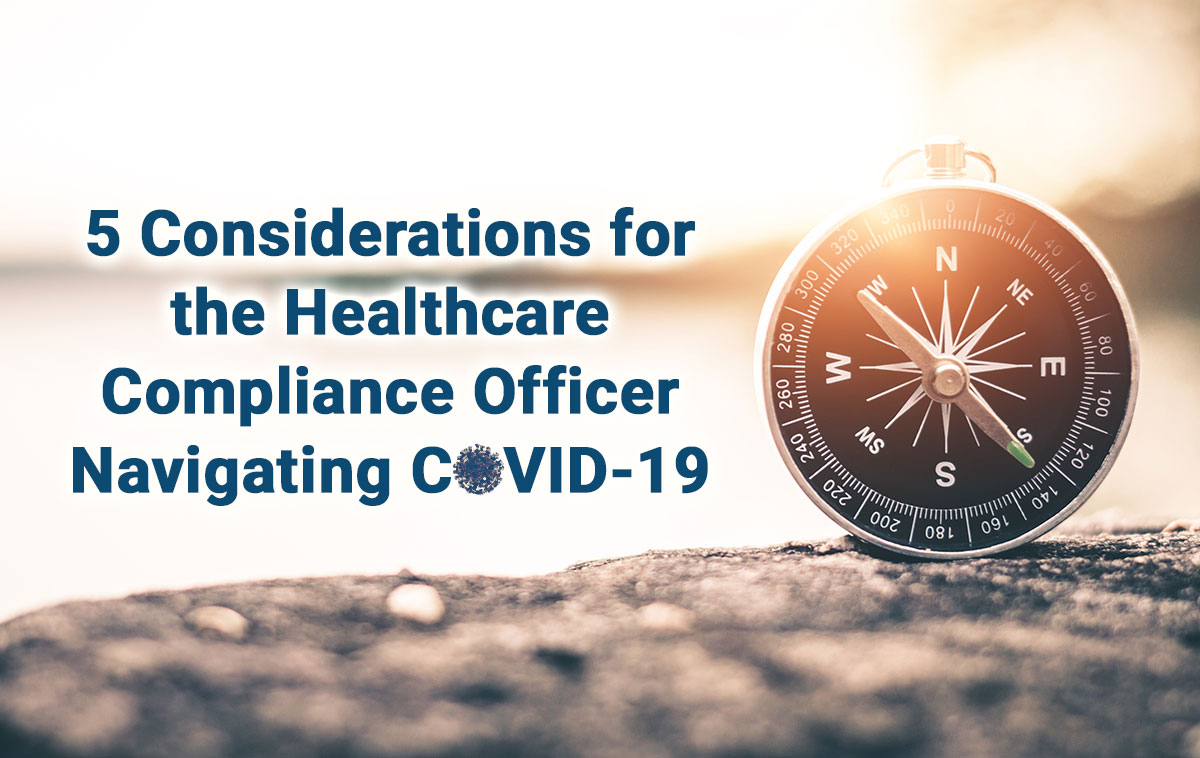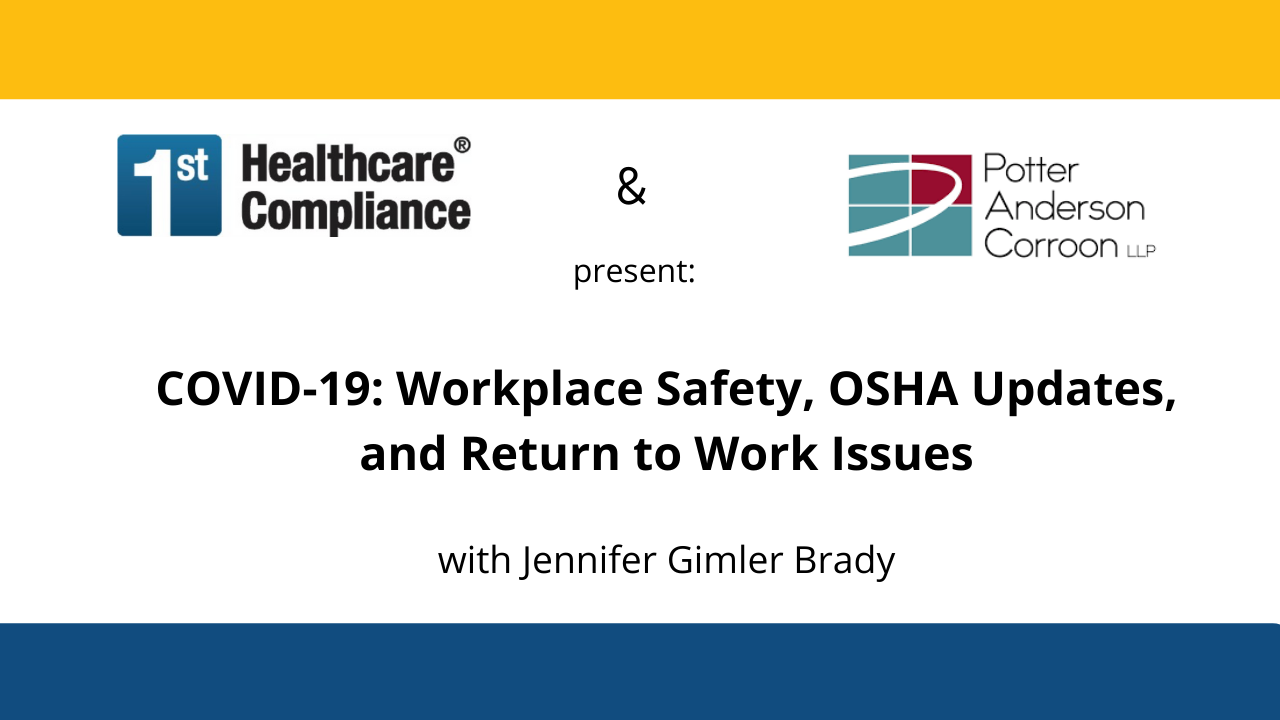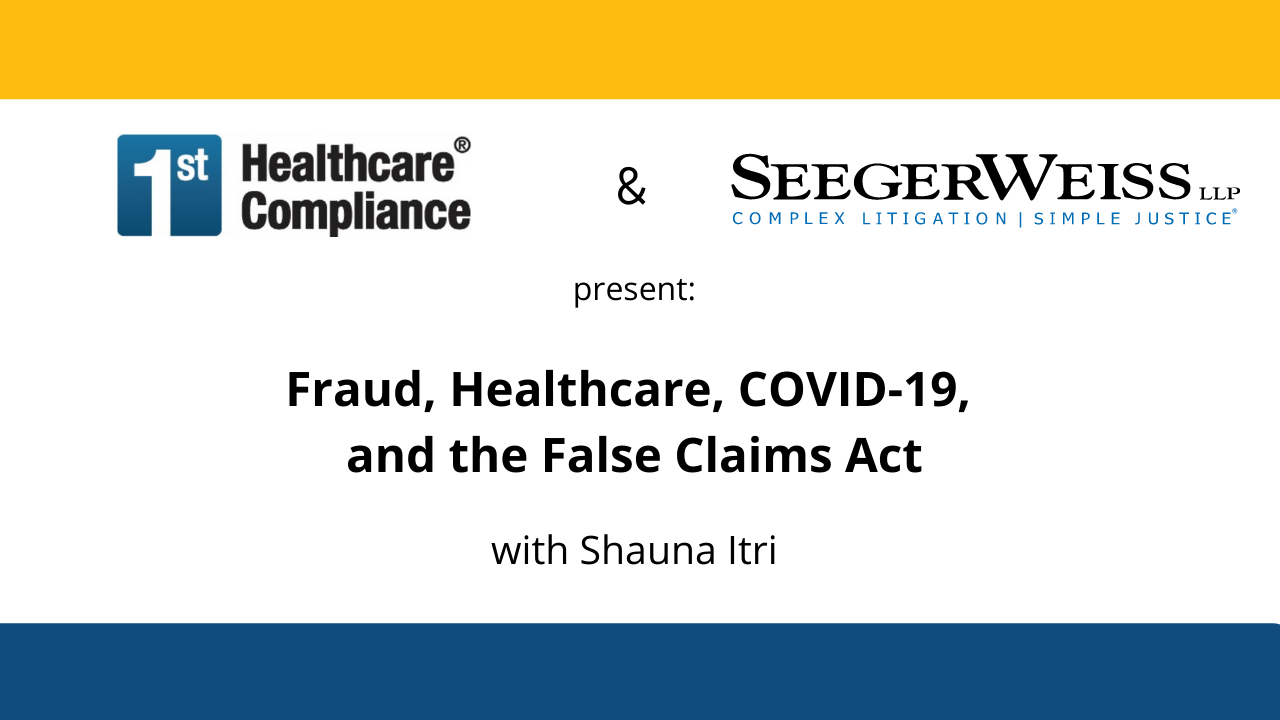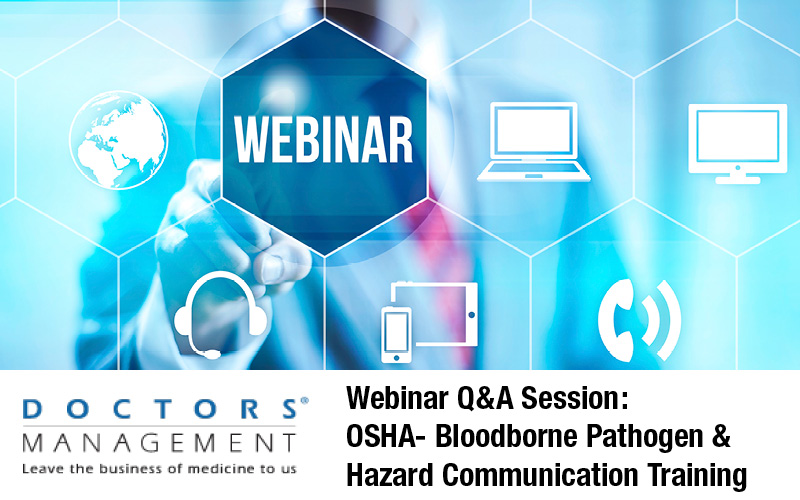5 Considerations for the Healthcare Compliance Officer Navigating COVID-19

As the COVID-19 crisis continues to evolve, healthcare compliance officers need to have a plan for the next stage. Unprecedented issues associated with a pandemic create risks for individuals, businesses, and especially healthcare organizations. Individual employees must put forth effort to avoid burnout, stay focused and productive, and tend to mental health.
Businesses face challenges in determining how to navigate employees who are high risk or reluctant to return to work. Healthcare organizations face the additional impact of uncharted territory and constantly changing regulations. As clinics open and schedules begin to include elective procedures, extra caution and consideration is required for the healthcare compliance officer during COVID-19.
Complexities of COVID-19 and Healthcare Compliance
Some risks to patients, employees, and the organization might not be apparent. In fact, uncertainty about future disruptions and regulatory expectations add to the complexity of managing compliance during this time. Healthcare compliance officers will attempt to answer these important questions while adjusting policies, procedures and processes to keep everyone safe and compliant.
There’s no map for the long road ahead, but healthcare compliance leaders must work toward recovery and risk mitigation during the COVID-19 outbreak with available resources to ensure the organization has a plan for communication and compliance.
Risk Management Considerations for the Healthcare Compliance Officer During COVID-19
Consider the following points while approaching risk management in the new landscape:
- The health and safety of patients and staff remain the top priority. Obviously, lifestyle changes such as avoiding physical contact and sanitizing shared surfaces not only apply to our personal lives, but to the workplace as well. In the healthcare setting protect workforce and patients by following the CDC guidelines to prepare the facility. OSHA also provides resources to help alleviate concerns about preventing the spread of COVID-19 and train employees before returning to work.
- Be cognizant of fraud schemes. Some newer schemes are aimed at harming patients and families by making unsolicited offers to take advantage of COVID-19 vulnerabilities. New vendors may be onboarded to obtain cleaning supplies and Personal Protective Equipment (PPE) so continue to monitor with exclusion screening at initial contracting and monthly thereafter.
- The need for a balance of privacy with safe and effective treatment during the crisis led to relaxed HIPAA enforcement. This is welcome news with the wide adoption of telemedicine, but providers should enable all available encryption and privacy modes when using third-party applications and enter into an appropriate Business Associate Agreement with HIPAA-compliant products whenever possible. It’s especially important to be mindful of HIPAA and cybersecurity when implementing changes such as virtual waiting rooms.
- Carefully review COVID-19 related arrangements with donations such as that of Personal Protective Equipment (PPE). Be mindful of the potential for government scrutiny in situations that may involve improper use of federal money because of the anti-kickback and self-referral laws even though the Centers for Medicare & Medicaid Services (CMS) has issued several Coronavirus Waivers and Flexibilities.
- Training and compliance programs continue to change due to the emergency and many employees working remotely. Embrace technology to enable staff communication and online training to stay on track. First Healthcare Compliance offers a complimentary COVID-19 webinar series, informative podcasts, and a comprehensive Ebook by Sheba Vine, Vice President and General Counsel.
For more help with COVID-19 and health care compliance, explore our health care compliance services here or contact us here today.






